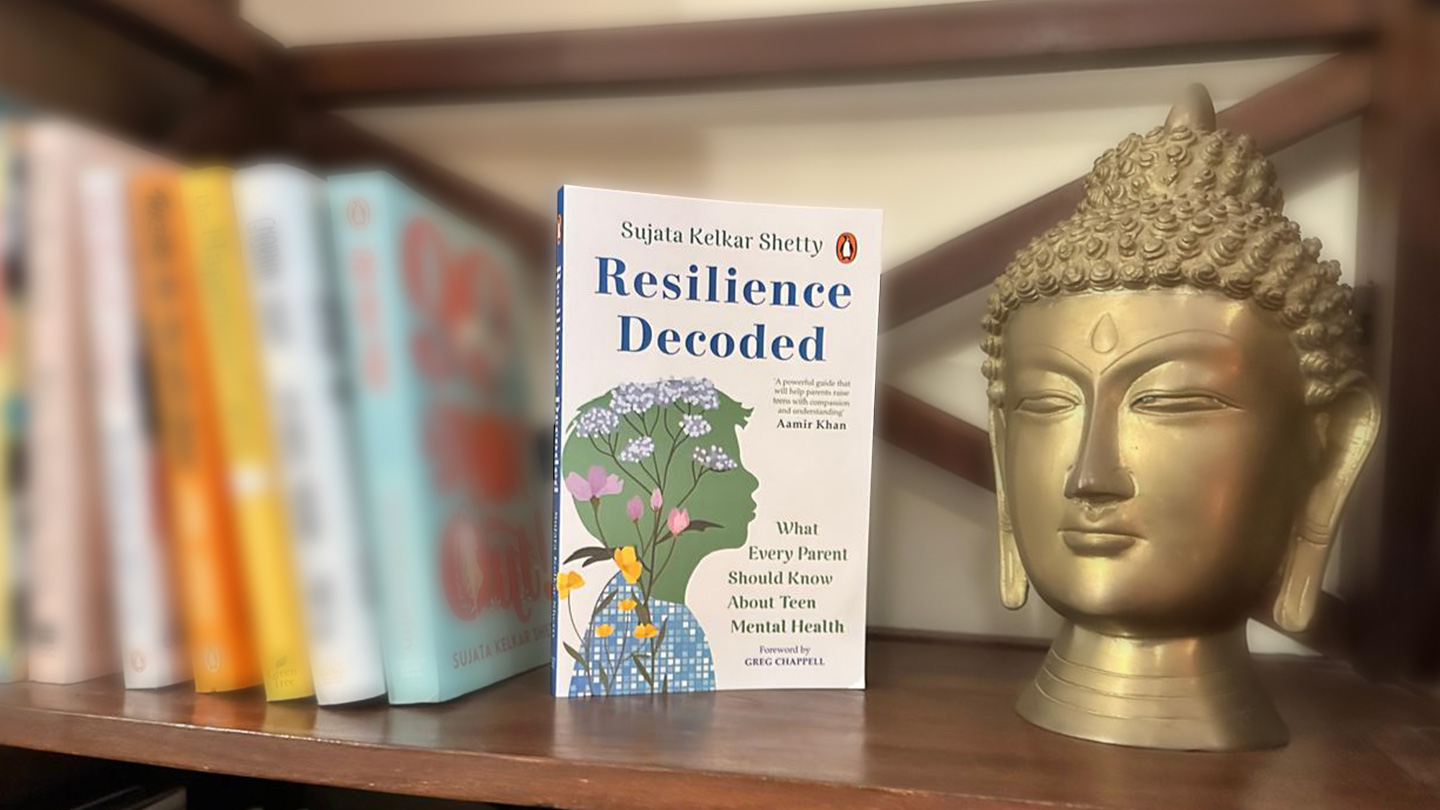Mental Health
Do Extroverts Really Have More Fun?
Extroverts love the spotlight, but that doesn’t mean introverts have to miss out. Here’s what research really says about who’s really having fun.

“Extroverts have more fun.” This bold claim, famously touted by travel guru Rick Steves, implies that being outgoing is the key to living it up: “If your trip is low on magic moments, kick yourself and make things happen,” he advises. Easy for an extrovert to say!
Such mantras feed the common belief that being more outgoing is more fun. But is it true? Do quieter folks really miss out on life’s great adventures, or do they simply define “fun” differently? Let’s explore if extroverts truly have more fun, or if introverts are quietly having a blast too.
Related story: Can You Shape Your Workout According to Your Personality? Here’s What Science Says
Different Ways to Have Fun
First, what is “fun,” exactly? If you define fun as late-night parties, energetic group adventures, and being the loudest person in the room, then yes, extroverts likely have more of that. Extroverts thrive in high-stimulation social settings. Big, boisterous gatherings can leave an introvert feeling like a fish out of water, drained rather than delighted. They often prefer smaller hangouts or solo pursuits. But does that mean introverts aren’t having fun? Not at all, their just fun wears a quieter disguise.
Related story: Discover Intentional Joy In Little Moments
Think of fun as any moment of joyful, carefree engagement. By this broader definition, you don’t need a crowd or noise to have a great time. You can find fun in a cosy, low-key way as well. What feels fun can be completely different from one person to another. Why do extroverts and introverts gravitate to such different kinds of fun? The answer may lie in our wiring.
Psychologists note that extroverted and introverted brains aren’t energised by the same things. Extroverts’ brains seek a dopamine rush; they have more dopamine receptors and get a jolt of happiness from novelty, risk, and social stimulation. Being in a buzzing crowd, meeting new people, or trying something daring lights them up. Introvert brains, in contrast, are more sensitive to dopamine; too much stimulation can feel overwhelming. Instead, introverts rely on acetylcholine, which rewards quieter pleasures. Acetylcholine brings a gentle sense of calm, focus, and contentment; the cosy joy of reading a book, gaming solo, or having a one-on-one talk. So, an extrovert might party all night and gain energy, while an introvert happily recharges with a peaceful evening in.
Related story: 7 Mindfulness Activities to Enjoy at Any Age
What Psychology Research Says
Do extroverts, on average, report being happier or having more fun? For decades, personality studies such as the one by Scientific American (2019) have consistently found that extroverts come out ahead on many measures of happiness and well-being. They tend to report more positive emotions day-to-day and higher life satisfaction. One famous study out of Wake Forest University found that introverts felt happier during moments when they acted extroverted, for example, by striking up a conversation or being more talkative than usual. Across cultures, this pattern holds: in a five-country study published in Journal of Research in Personality (2014), people reported more positive emotions in situations where they behaved outgoing and social, regardless of whether they were in the U.S., China, or Venezuela. It seems that being sociable and engaging with others tends to boost mood for many of us; social creatures that we are.
But before all you introverts facepalm, let’s unpack those findings. Some critics argue that psychology has been using an extrovert-biased yardstick to measure happiness. Often, “happiness” in these studies is defined in extroverted terms, essentially equating it with high-energy feelings. In reality, feeling at ease and fulfilled can be an introvert’s version of “having fun,” even if it wouldn’t look exciting on an extrovert’s scorecard.
Related story: Fear of FOMO? Try JOMO Instead. Discover the Joy of Missing Out
When we broaden the view of well-being, the gap between extroverts and introverts shrinks a bit. For instance, extroverts do report more outward joy, but introverts often report less anxiety and find contentment in calm, a different kind of happiness. One fascinating study by the Journal of Experimental Psychology in 2019 even suggested that the happiest introverts are the ones who embrace their introversion instead of trying to force extroversion. But being true to your own style is a big wellbeing booster.
In 2019, a study in the Journal of Experimental Psychology asked college students to spend a week acting extroverted (being talkative, assertive and spontaneous) and another week acting introverted (being quiet, deliberate, and reserved). The results were striking: during the extroverted week, people reported higher well-being, more positive emotions, more social connection, and even more moments of “flow” (engrossed enjoyment of activities). During the introverted-behaviour week, the same people’s mood and well-being indices dropped. This suggests that injecting some outgoing behaviour into your life can give you a happiness high, at least in the short term.
A short social stretch can be stimulating for introverts, but keeping it up too long might become draining. It’s like sprinting, a quick dash can invigorate you, but you wouldn’t want to sprint all day, every day. Introverts can enjoy acting extroverted, but moderation matters. A little party can go a long way, whereas constant socialising will wear them out.
Related story: Finding Joy Through Exercise
Finding Happiness on Your Own Terms
So, do extroverts really have more fun? After all this, the honest answer is: it depends on how you define “fun,” and it depends on who you are. Extroverts do have more fun by their own definition; they love lively, high-energy experiences, and they get plenty of that. They also tend to say they’re happier on surveys, which is true in terms of excited positive emotions. But introverts have fun too; a just-as-real, grin-till-your-cheeks-hurt kind of fun, only sparked by different activities. The joy an introvert feels while quietly stargazing on a clear night or having a game night with a couple of close friends is no less valid than the joy an extrovert feels dancing in a packed club. It’s all about personal resonance. In the end, it’s not a competition. There’s no trophy for “Most Fun Person.”
Related story: The Joyful Workout: Why Zumba Feels More Like a Party
Psychologically, the healthiest approach is to embrace your own style while staying open to growth. If you’re an introvert, that means enjoying your peaceful downtime guilt-free, and maybe nudging yourself out to a social activity now and then to keep connections alive. If you’re an extrovert, enjoy your parties and adventures, and maybe slow down occasionally to appreciate a quiet moment or listen more deeply to your introverted pals. Neither introverts nor extroverts are superior; they simply have different strengths and sources of happiness. Fun is where you find it, whether it’s singing karaoke with twenty new friends or curling up with popcorn to binge your favourite show. Extrovert or introvert, the real key is knowing what brings you joy and giving yourself permission to pursue it. And that’s the kind of fun we all deserve.
Related story: Seven Archetypes of Personality with Michele Paradise
EXPLORE MORE
Your mind loves to hit repeat. The good news? You can learn to hit stop.
Sujata Kelkar Shetty shows parents how to build resilience in teens without losing themselves. Dive into this insightful conversation as we understand “Resilience Decoded”.
Addiction doesn’t just happen in shadows; it lingers in our routines, our emotions, and even our silences. But recovery isn’t about one dramatic leap; it’s about rewriting your story, one small choice at a time.
Distraction is the modern-day flu, spreading fast, hard to shake, and often underestimated. But with a few surprising shifts, you can train your brain to stay present, calm, and focused.












